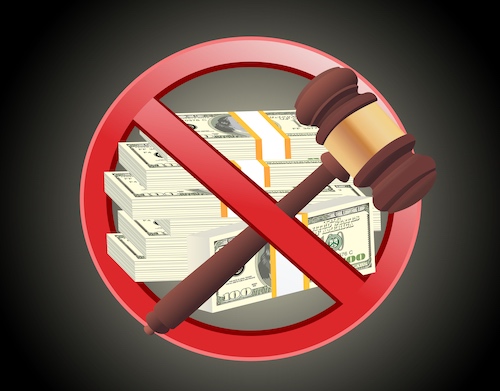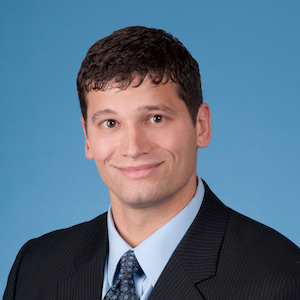 The Federal Circuit recently affirmed the decision of the Federal District Court for the District of Minnesota denying attorney fees to Wright Medical Technology, Inc. Spineology, Inc. had alleged Wright’s X-REAM® expandable reamer product infringed several claims of its patent. The alleged infringement hinged on the claim construction of the term “body.” Initially, the district court declined to adopt either party’s construction of the term. On cross-motions for summary judgment, however, the court construed “body” consistent with Wright’s non-infringement position and granted Wright’s motion. Wright then moved for attorney fees, arguing Spineology’s proposed construction of “body,” its damages theories, and its litigation conduct rendered the case exceptional under 35 U.S.C. § 285. The district court denied Wright’s motion, and the Federal Circuit ultimately affirmed that decision. See Spineolog, Inc. v. Wright Medical Technology, Inc. (Before PROST, DYK and MOORE).
The Federal Circuit recently affirmed the decision of the Federal District Court for the District of Minnesota denying attorney fees to Wright Medical Technology, Inc. Spineology, Inc. had alleged Wright’s X-REAM® expandable reamer product infringed several claims of its patent. The alleged infringement hinged on the claim construction of the term “body.” Initially, the district court declined to adopt either party’s construction of the term. On cross-motions for summary judgment, however, the court construed “body” consistent with Wright’s non-infringement position and granted Wright’s motion. Wright then moved for attorney fees, arguing Spineology’s proposed construction of “body,” its damages theories, and its litigation conduct rendered the case exceptional under 35 U.S.C. § 285. The district court denied Wright’s motion, and the Federal Circuit ultimately affirmed that decision. See Spineolog, Inc. v. Wright Medical Technology, Inc. (Before PROST, DYK and MOORE).
An exceptional case under § 285 “is one that stands out from others with respect to the substantive strength of a party’s litigating position (considering both the governing law and the facts of the case) or the unreasonable manner in which the case was litigated.” Octane Fitness, LC v. ICON Health & Fitness, Inc., 134 S. Ct. 1749, 1756 (2014). However, as the Federal Circuit explained, “fee awards are not to be used as a penalty for failure to win a patent infringement suit.” (citing Checkpoint Sys., Inc. v. All-Tag Sec. S.A., 858 F.3d 1371, 1376 (Fed. Cir. 2017)).
On appeal, Wright argued Spineology’s proposed construction of the term “body” was meritless, and its continued pursuit of such a meritless construction after the court declined to adopt its claim construction order was unreasonable. The Federal Circuit disagreed, reasoning Spineology’s continued pursuit of its claim construction was not so unreasonable as to render the case exceptional. “Wright cannot fairly criticize Spineology for continuing to pursue a construction not adopted by the district court in the claim construction order, since the district court declined to adopt Wright’s proposed construction as well,” Judge Moore wrote for the panel. “We see no abuse of discretion here.”
Moreover, Wright argued the district court should have, as part of its exceptional case determination, reviewed the parties’ various expert reports on damages and assessed the merits of Spineology’s damages theories. According to Wright, Spineology’s expert’s miscalculation of damages based on his improper reliance on the entire market value rule and a flawed royalty rate merited a determination of an exceptional case. The Federal Circuit, however, noted Spineology’s damages request was supported by case law and, therefore, was not without merit. Further, because the district court decided the case on summary judgment, the merits of Spineology’s requested damages were never reached. The Federal Circuit emphasized its unwillingness to “litigate to resolution every issue mooted by summary judgment to rule on a motion for attorney fees.” The Federal Circuit also cautioned “future litigants to tread carefully in their complaints about district courts not doing enough.”
Finally, Wright challenged as “exceptional” Spineology’s conduct during litigation. Wright alleged Spineology attempted to mislead the district court by (1) cropping and annotating a figure, which undermined its proposed construction of “body,” and (2) withholding its expert’s measurements of the accused product. In siding with Spineology again, the Federal Circuit explained the district court was better positioned to determine an exceptional case.
The Federal Circuit also noted the district court “had no obligation to write an opinion that reveals [its] assessment of every consideration.”
Take Away
When a court chooses not to adopt either party’s claim construction arguments, continued pursuit of the proposed claim construction does not necessitate a finding of an exceptional case. Further, a district court need not decide issues mooted by summary judgment to determine whether a case is exceptional.
Image Source: Deposit Photos.

![[IPWatchdog Logo]](https://ipwatchdog.com/wp-content/themes/IPWatchdog%20-%202023/assets/images/temp/logo-small@2x.png)




![[Advertisement]](https://ipwatchdog.com/wp-content/uploads/2024/04/Patent-Litigation-Masters-2024-sidebar-early-bird-ends-Apr-21-last-chance-700x500-1.jpg)

![[Advertisement]](https://ipwatchdog.com/wp-content/uploads/2021/12/WEBINAR-336-x-280-px.png)
![[Advertisement]](https://ipwatchdog.com/wp-content/uploads/2021/12/2021-Patent-Practice-on-Demand-recorded-Feb-2021-336-x-280.jpg)
![[Advertisement]](https://ipwatchdog.com/wp-content/uploads/2021/12/Ad-4-The-Invent-Patent-System™.png)







Join the Discussion
No comments yet.